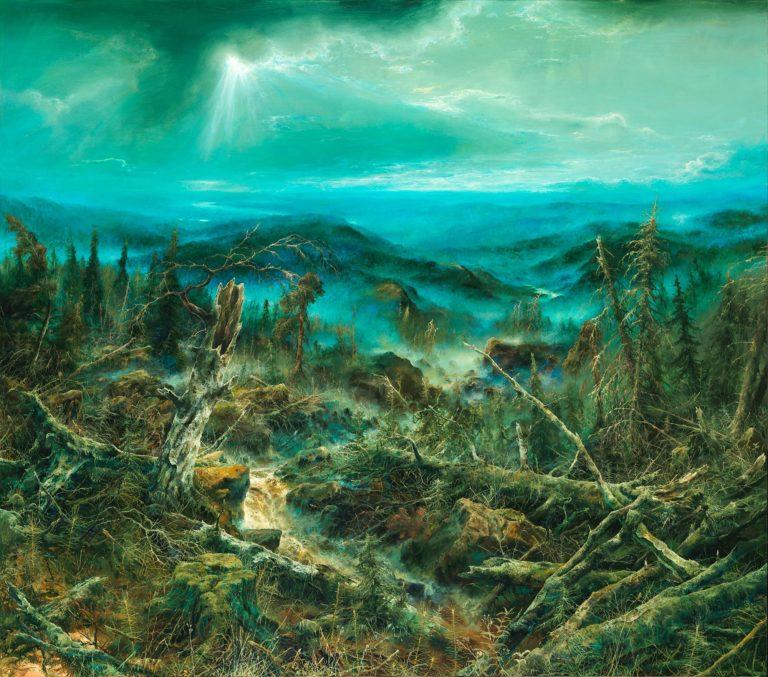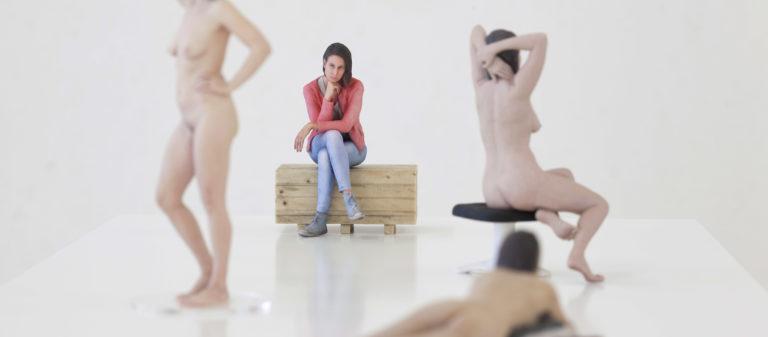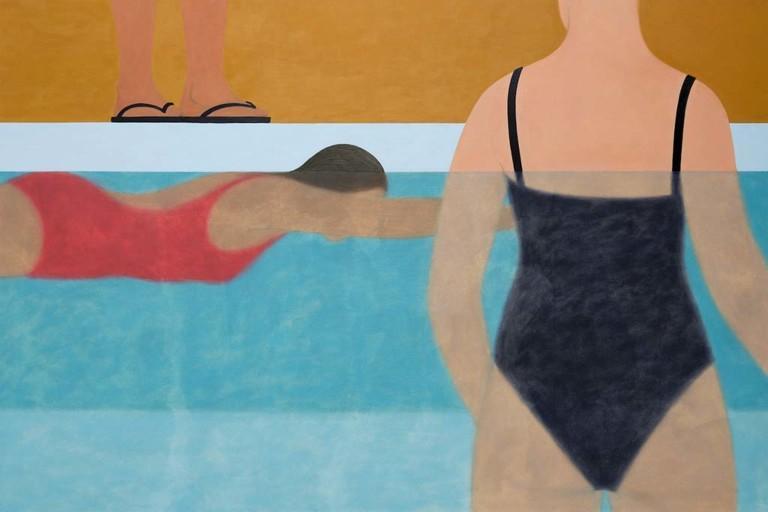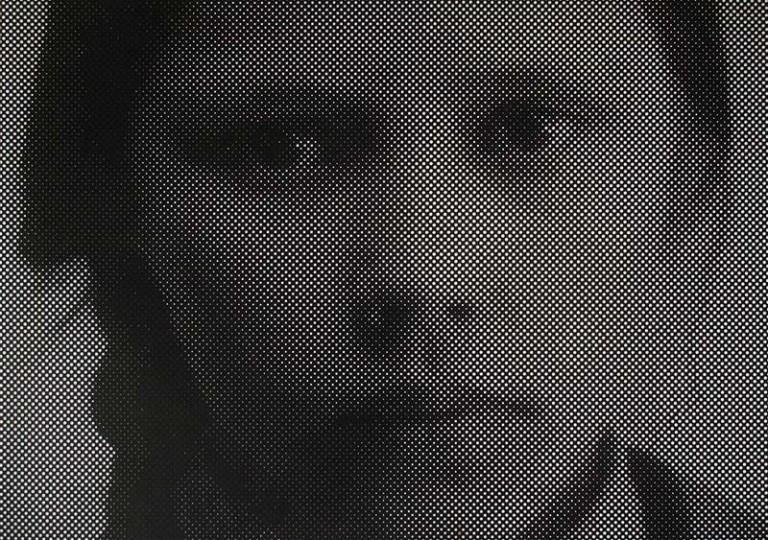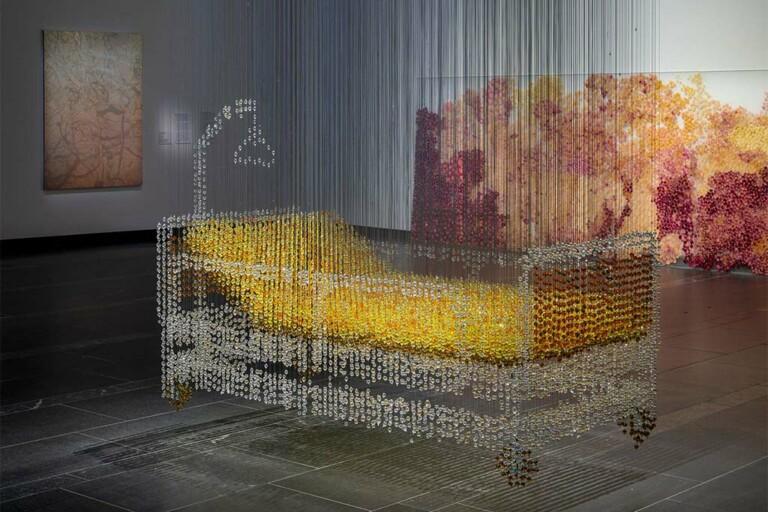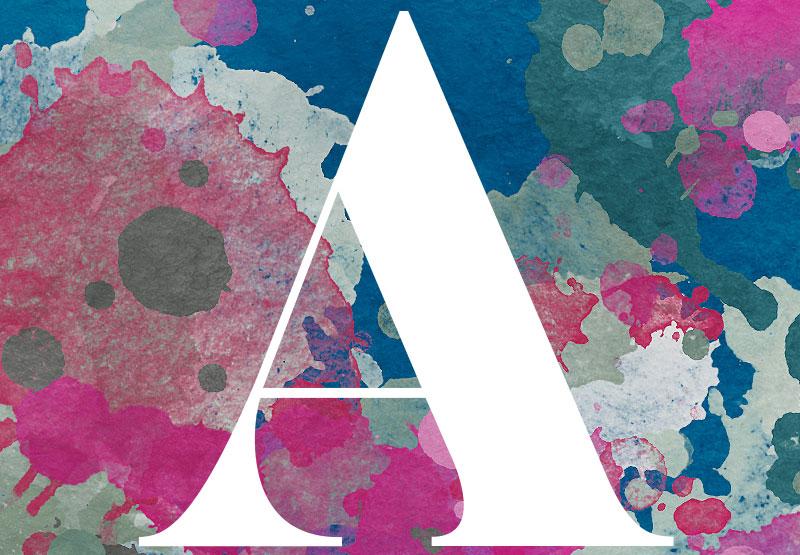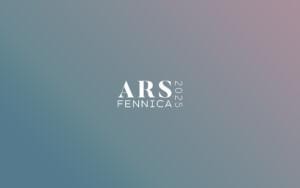Emilija Škarnulytė from Lithuania has won the 2023 ARS FENNICA award. The winner was chosen from among five candidates by Anne Barlow, the international expert invited by the award panel for the year 2023. She is the director of the Tate St Ives museum in the United Kingdom and an internationally known expert in contemporary art. She justifies her choice as follows:
It has been an enormous honour to participate as selector for the Ars Fennica 2023 Award. The process involved carrying out studio visits with each artist and considering the breadth and scope of their work in recent years alongside their presentations at Kiasma. This provided an invaluable opportunity to engage with the artists’ interests and ideas, and to consider the continuing evolution of their practice. I found all five artists to be exceptional in terms of the strength of their vision and quality of work, which made selecting one artist for the Award a challenging task.
The decision to give the Award to Emilija Škarnulytė is based on the unique approach that she has demonstrated in her films and immersive installations. Her work is deeply complex in terms of both content and methodology, covering topics such as climate change, extraction, and extinction in ways that combine critical analysis with a searching imagination.
Škarnulytė views her subject matter from the perspective of an archaeologist from the future, casting a lens on specific places, sites and technologies that interest her: aphotic zones of the sea, Cold War military bases, mining sites, neutrino observatories, deep-sea data storage units, and a decommissioned nuclear power plant. In terms of their legacies as structures or invasive processes, she views these as ‘monuments’ or in some cases ‘scars’ in the earth’s environment, raising questions around what they might communicate to future beings about humankind, its values and endeavours.
Her cinematic vision combines documentary footage with digitally rendered imagery, moving from macro to micro in terms of a slow panning gaze from vast architectural interiors to suggestions of the infinitesimal. Her interest in an expanded understanding of the senses can be seen in her Kiasma presentation, Aldona (2013), a film of her grandmother who became blind in the wake of the Chernobyl nuclear disaster. In this film, Škarnulytė focuses on the senses of hearing and touch, whilst also bringing to the work renewed political resonance, connecting older events with current political times in terms of the fragility of borders and human life itself.
Škarnulytė often collaborates with scientists and experts in other fields, and her research process is rigorous and persistent, sometimes taking years to gain access to restricted sites. At times, she physically places herself within these environments, for example charting a course through former nuclear submarine canals in the Arctic Circle. For these journeys she assumes the hybrid form of the mermaid, half-human and half-fish that is at once a ‘post-human’ as well as a mythical and ancient form that travels seamlessly across the past, present and future – and as such, it is a significant protagonist within her larger exploration of deep time.
Across her work, Škarnulytė considers bodies of water from a myriad of perspectives in terms of their significance in legends, myths and science fiction, sites of ancient civilisations now submerged, and spaces that are increasingly polluted and ravaged by extractive industries – acting as signifiers of the damage being done to the planet. In her powerful and mesmerising work, Škarnulytė considers critical issues of our time in a deeply compelling way and it feels fitting that she should be awarded the Ars Fennica 2023 Award.
Anne Barlow
Director, Tate St Ives Museum
Read more about Emilija Ṧkarnulyté and get to know her artwork on her artist page. Ars Fennica exhibition in Kiasma is open until 28.1.2024 and visitors can vote their favorite as well. Learn more about the candidates here and watch the video documentary about their work.

